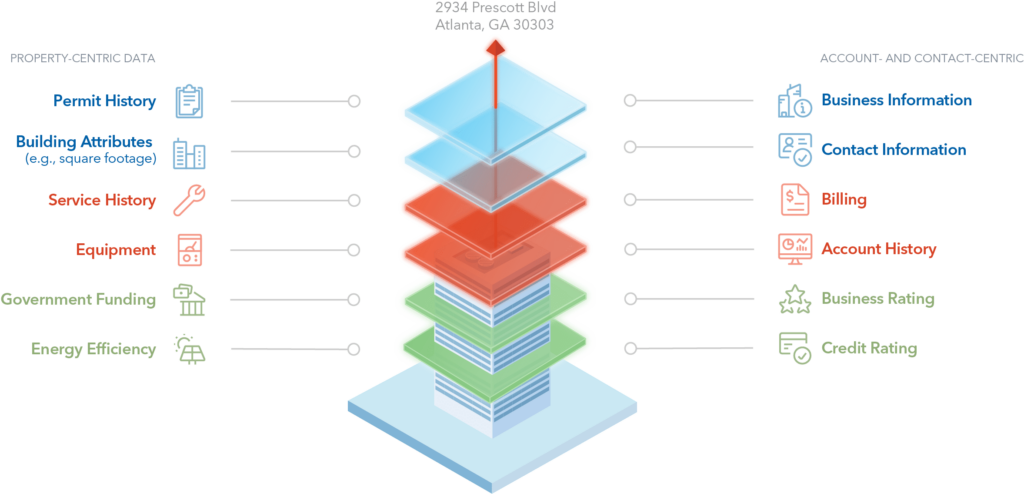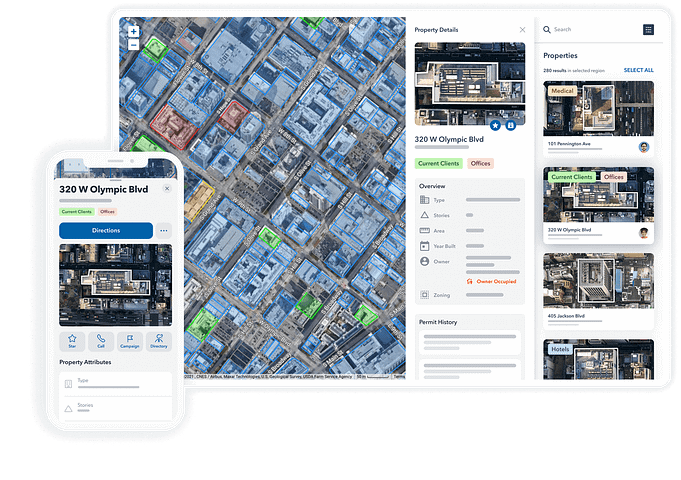Introduction
Sales pros regularly deal with rejection, stubborn gatekeepers, and “smart” spam filters while trying to find great leads- the “daily grind” shouldn’t be made harder with tricky databases and outdated prospect info.
Luckily, today, we have access to sales intelligence software. Automated sales intelligence tools can further streamline the process by automating sales-related tasks and providing actionable insights.
The biggest hurdle salespeople face today is low-quality, outdated leads—they’re time-consuming and often a dead end. This is where sales intelligence can have a huge impact- turning the complex job of generating leads into a simple, straightforward path to decision-makers… which is exactly why sales intelligence was created.
So, what exactly is sales intelligence? And how is it different from CRM systems, lead databases, and other prospecting tools available today? More importantly, how can sales pros use this tech to crush their sales goals?
This article breaks down sales intelligence, exploring the “ins” and “outs,” some features and benefits, and guiding you to some of the top tools to supercharge your sales strategy.
Hopefully, by the time we reach a conclusion, you’ll have a clear winner to empower your team!

Understanding B2B Sales Intelligence Tools
What Are B2B Sales Intelligence Tools?
The best B2B sales intelligence tools for industrial and commercial sales teams are more than just databases; they are comprehensive sales intelligence solutions that turn raw data into actionable insights about potential customers through prospect intelligence – ie. data on potential customers that will help you reach out to them at the right time.
These platforms pull data from all across the web, but mostly lean on big-data providers, company websites, social media, industry news, and other tools that actively track various markets.

The Value of Sales Intelligence
At its core, the purpose of a sales intelligence platform is to equip a sales team with critical data that enhances the understanding of prospects, helping to convert leads into successful deals more efficiently.
In short, telling you when to reach certain people based on what they need. This is called a “buying signal” – something we’ll talk about more, later.
The true value of these tools is in their ability to automate and refine the sales process by focusing on high-value activities that drive engagement and close deals.
The Spectrum of Sales Intelligence Tools
Today, sales intelligence is used as a broad term encompassing many different tools- more than 250 (according to G2). But, despite the sheer number of these solutions, each one is designed to address specific aspects of the sales cycle. For example, GONG is a sales intelligence software that analyzes sales calls, and Convex is a property intelligence platform for commercial services lead generation.

Streamlining Sales Activities
When you look at a traditional sales cycle, the biggest challenge is research (getting the right data). A prime example of this is a call I had last week. A new sales rep was going through his company’s account-based outreach approach and the process took almost 4 hours.
He spent 2 hours researching leads at a prospective customer’s company, an hour creating cold emails and Loom videos, 30 minutes uploading and scheduling everything to be sent, and almost 30 minutes making sure Salesforce and other tracking tools were in sync.
Meaning outreach to one prospective customer (using an account-based marketing (ABM) approach), took half a day. According to Salesforce, this is typical for a sales team. Sales representatives usually spend up to 21% of their weekly time on prospecting research.
This is where sales intelligence tools can excel. Let’s revisit the same 4-hour scenario, but instead of the traditional sales tech stack, let’s try it with Convex.
Convex’s property intelligence platform makes finding prospects easy, in as little as 3- 5 minutes. With a map feature that was specifically created for local sales teams that work with property and facilities managers, building maintenance, and site administrators, your sales reps can literally search the type of property (hospital, warehousing, multifamily, or commercial building) or asset they’re servicing (ie. HVAC, solar, roofing, commercial cleaning, etc.) and use buying signals and Generative AI for initial outreach.

With these advantages, sales intelligence software can eliminate the tedious aspects of lead research, such as manual filtering and data uploads to a CRM. This allows teams to concentrate on engaging with buyers when they are actively seeking your services.

The Difference Between CRM and Sales Intelligence
One of the questions we see a lot in sales intelligence forums and online research platforms is, “What’s the difference between CRM tools and sales intelligence software?
Both tools are vital for sales and marketing teams, but they have distinct roles and work together to boost overall sales efficiency and effectiveness.

CRM Systems: The Foundation of Customer Management
CRM systems are designed to manage and analyze customer interactions and data throughout the customer lifecycle. Their primary goal is to improve business relationships with customers, assist in customer retention, and drive sales growth.
A CRM system acts as a database to store information such as contact details, sales opportunities, service cases, and marketing campaigns. Here’s how CRM systems typically benefit sales teams:
Centralized Information: Store all customer interaction data and history in one place, making it easier to track engagements and manage relationships.
Enhanced Communication: Enable better communication within sales teams by providing a shared platform for accessing customer details.
Efficiency in Sales Processes: Automate tasks like scheduling calls and follow-ups, and managing sales pipelines.
Sales Intelligence: Enabling Smarter Sales Decisions
Sales intelligence tools, on the other hand, focus on providing data and insights that inform sales strategies. These tools aggregate and analyze data from various external sources such as industry news, social media, company databases, and more to create detailed profiles of potential leads and markets. Sales intelligence tools are used to:
Identify and Prioritize Leads: Help sales teams find and focus on leads that are most likely to convert based on predictive scoring systems.
Gain In-depth Insights: Offer detailed insights into potential customers’ business needs, recent news, financial status, buying signals, and sales intelligence data.
Streamline Outreach: Provide recommendations for the best times to contact leads and personalize communication strategies.
These tools “bookend” the sales process. With sales intelligence finding great leads and CRM systems managing them throughout the sales cycle, both tools can help you better meet the needs of prospects and customers.

How Sales Intelligence Facilitates Closing More Deals
In sales, information is power. There’s no way around this fact.
Sales intelligence tools arm teams with the necessary insights to not only reach but effectively engage potential buyers, transforming the sales process into a streamlined and highly targeted operation. Let’s look at how these tools contribute to closing more deals by sharpening your team’s focus and efficiency.

Identifying Qualified Accounts and Leads
At the heart of effective sales strategies is the ability to identify and prioritize leads that are not only interested but ready to engage. Intent data helps in identifying and prioritizing leads by providing insights into businesses actively researching and interested in specific topics or products. This is where buying signals come into play. Sales intelligence platforms excel in this area by:
Tracking Company Buy Signals and Decision-Makers
You have to understand that there are two distinct types of “signal:”
Intent Data
Sales Intelligence Data
Intent data tracks how a prospect or decision-maker interacts with your assets – websites, landing pages, social media posts, etc. – while sales intelligence data presents a real-time view of what is happening with a company or property and its decision-makers.
Knowing when and whom to contact within a prospective business can dramatically increase the likelihood of a sale. Sales intelligence provides a competitive edge by:
Prioritizing Ideal Prospects: By leveraging vast data sources, these platforms analyze and present companies that align perfectly with your ideal customer profile.
Behavioral Insights: Understanding the buying behavior of prospects, including their search patterns and content interactions, allows for a targeted approach that is much more likely to resonate and convert.
Buy Signal Alerts: Receive notifications when a potential lead shows clear buying signals, such as visiting pricing pages or downloading case studies, indicating they are in a decision-making mode.
Identifying Key Decision-Makers: Access to updated databases with detailed contact information helps pinpoint the right people within an organization, ensuring your message reaches the individuals who have the authority to make purchasing decisions.

Streamlining Your Tech Stack with Sales Intelligence Software
Integration and efficiency in your sales tech stack can significantly reduce the time spent on non-sales activities, allowing your team to focus on what they do best—selling. Sales intelligence software enhances this by:
Consolidating Information: By syncing data across platforms, all information about prospects and customers is centralized, reducing the need to switch between tools and databases.
Increasing Efficiency: Automated data updates and integration mean less manual entry and upkeep, freeing up your team to concentrate on crafting personalized outreach strategies.
While most sales professionals and marketing teams won’t be looking to get rid of their CRM systems anytime soon, modern sales intelligence platforms like Convex offer integration OR lightweight CRM tracking features that could help a team streamline their primary sales activities to one platform.
But, if you remember from the introduction, there are more than 250 of these tools- how do you choose the right one?

Evaluating the Top B2B Sales Intelligence Tools: Features, Target Markets, and Distinctions
When evaluating the best sales intelligence tools, it’s crucial to consider their features, target markets, and unique selling points to ensure they meet your specific needs.
Choosing the right sales intelligence tool can be a game-changer. It’s important to check out the best options on the market. These tools bring a lot to the table, like better lead generation, deeper customer insights, and more personalized sales conversations, all of which can really boost your sales efficiency and effectiveness.
Understanding what each tool offers and who it’s best for is key. This guide gives you a detailed comparison to help sales pros, managers, and teams at commercial services companies find the perfect fit for their needs.
1. Convex
Convex is a property intelligence platform created specifically to accelerate revenue for commercial and industrial sales teams. The platform is tailored specifically for industries like HVAC, security, janitorial services, and more, supporting them in identifying and engaging with leads more effectively.
Value Proposition: Offers best-in-class, regularly updated contact data, property data, Generative AI for outreach and sales call preparation, and the only sales intelligence platform in the U.S.A. built specifically for commercial and industrial sales teams.
Target Market: Ideal for business development, marketing, and sales teams that need the best data, buying signals, and resources to optimize lead generation and close deals.
Unique Selling Point: Focuses on both individual contributors and teams, offering flexible seat-based pricing.
2. GONG
Gong.com is a conversation intelligence platform that uses AI to analyze sales calls and meetings, providing actionable insights to improve sales strategies and outcomes. This technology aids in refining communication tactics and enhancing sales team effectiveness.
Value Proposition: Specializes in conversation intelligence, analyzing sales calls to provide actionable insights.
Target Market: Best suited for sales teams looking to improve their communication strategies and sales techniques based on data-driven insights.
Unique Selling Point: Strong privacy protocols ensure that data handling meets stringent standards, which is pivotal for companies concerned about compliance.
3. Cognism
Cognism is a sales intelligence platform that provides businesses with comprehensive, GDPR-compliant contact data, aiding sales teams in regulated industries. It offers features like phone-verified contacts and robust compliance standards, making it particularly suitable for companies prioritizing legal defensibility in their operations.
Value Proposition: Provides phone-verified contact data with a strong focus on GDPR compliance, ensuring data usage is legally defensible.
Target Market: Target sales teams in regulated industries or those that prioritize legal compliance in their operations.
Unique Selling Point: Seat-based pricing makes it accessible for teams of all sizes, from startups to large enterprises.
4. LinkedIn Sales Navigator
LinkedIn Sales Navigator is a powerful sales intelligence tool designed to help sales professionals connect with potential clients and manage relationships more effectively. It offers advanced search and filtering options, making it easier to find and connect with the right leads based on detailed criteria such as industry, location, company size, and job title.
Value Proposition: “Sales Nav” leverages LinkedIn’s extensive network to provide advanced search and filtering options, making it easier to find and connect with potential leads. LinkedIn also offers targeted advertising capabilities to specific prospects, a feature unique to them.
Target Market: Ideal for B2B companies that value professional networking and want to tap into LinkedIn’s vast user base.
Unique Selling Point: Provides detailed criteria for targeting, such as job titles and company size, enhancing lead qualification processes.
5. Clearbit
Clearbit is a data intelligence platform that enhances marketing strategies by providing real-time data enrichment to help companies understand their customers better. It uses machine learning to keep data fresh and accurate, supporting market responsiveness. Clearbit is especially useful for sales and marketing teams needing current data to align their strategies with customer behaviors.
Value Proposition: Provides real-time data enrichment that helps companies understand their customers better and tailor their marketing strategies accordingly.
Target Market: Marketing teams and sales professionals who need up-to-the-minute data to keep their strategies aligned with customer behaviors.
Unique Selling Point: Utilizes machine learning to keep data fresh and accurate, providing a competitive edge in dynamic markets.
6. CoStar
CoStar offers extensive real estate information and analytics, primarily for commercial properties, providing in-depth data on market trends, property values, and industry conditions.
Value Proposition: Delivers comprehensive and accurate commercial real estate data to support informed investment and business decisions.
Target Market: Real estate professionals, investors, and companies in the commercial property sector who require detailed market and property insights.
Unique Selling Point: Provides one of the most complete databases for commercial real estate market analysis, equipped with tools for assessing property details, trends, and investment potentials.
7. 6sense
6sense is a marketing platform that leverages AI to provide predictive analytics and account engagement for B2B companies, focusing on identifying prospects and optimizing the timing and content of outreach.
Value Proposition: Enhances marketing efforts by predicting buyer behavior and intent, allowing companies to target accounts that are in active buying cycles.
Target Market: B2B organizations seeking advanced insights into buyer intent and account-based marketing strategies to streamline and enhance their sales processes.
Unique Selling Point: Offers a comprehensive platform that integrates AI-powered insights with tools for account-based marketing, providing detailed predictions on buyer intent and journey stages.
8. Datanyze
Datanyze is a sales intelligence and lead generation software that specializes in techno-graphics. It provides real-time insights by tracking technology choices and purchasing signals from potential leads, aiding businesses in understanding which technologies their prospects are using and when they might be looking to switch. This facilitates highly targeted marketing and sales efforts based on current tech usage.
Value Proposition: Focuses on technographic data, helping companies understand what technologies their prospects use and how this can inform the sales process.
Target Market: Tech-focused B2B companies that benefit from knowing the software or technologies potential leads are currently using.
Unique Selling Point: Provides real-time data for immediate relevancy and applicability.
9. Vainu
Vainu is a sales intelligence platform that offers real-time data on companies to boost B2B sales and marketing effectiveness. It leverages machine learning to provide insights into company triggers, buying signals, and decision-maker information, facilitating more strategic and timely engagement with prospects.
Value Proposition: Uses AI and machine learning to provide real-time data on companies and decision-makers, focusing on triggers and buying signals.
Target Market: Sales teams that require agile responses to market changes and prospect activities.
Unique Selling Point: Real-time updates give users an edge in rapidly changing industries.
10. Kaspr
Kaspr is a B2B sales tool that streamlines lead generation and outreach efforts, particularly through LinkedIn. It enables users to quickly build outreach lists by gathering prospects’ email addresses, phone numbers, and other essential information directly from LinkedIn profiles.
Value Proposition: Offers a LinkedIn-based lead generation and management tool that simplifies prospecting directly on the platform.
Target Market: Sales professionals who frequently use LinkedIn to network and find leads.
Unique Selling Point: Directly integrates with LinkedIn, enhancing user experience on the platform.
11. HubSpot Sales Hub
LinkedIn Sales Hub is a sales automation and CRM tool that manages the sales pipeline, automates sales tasks, and tracks customer interactions. It offers a range of features designed to enhance the efficiency and effectiveness of sales processes within businesses.
Value Proposition: Combines CRM capabilities with advanced sales automation tools to streamline sales processes.
Target Market: Businesses looking for an all-in-one solution to manage their sales pipeline and automate tasks.
Unique Selling Point: Seamless integration with HubSpot’s broader marketing and service hubs offers a unified approach to customer relationship management.
12. Lusha
Lusha is a data enrichment tool that enhances B2B lead generation and prospecting by providing sales and marketing professionals with direct access to contact details like email addresses and phone numbers. It integrates with platforms like LinkedIn and Salesforce, offering detailed B2B company information and contact data in real time, thus streamlining the outreach process for users.
Value Proposition: Simplifies the process of finding accurate contact information, streamlining the initial stages of lead contact.
Target Market: Small to medium sized businesses that need straightforward solutions for lead contact information.
Unique Selling Point: Offers a limited free plan that allows businesses to test the service before committing financially.
So, we’ve looked at more than a dozen sales intelligence platforms, which one is right for you? Well, let me ask you this- according to the descriptions, which one was designed and built for a sales team in your space?
If you’re in HVAC, Solar, Elevators, Fire, Life, and Safety, or one of the many other commercial services businesses that work with property managers and building facilities, it’s not one of the big databases- it’s a platform tailored specifically for property and commercial services intelligence, like Convex.
With its precise targeting capabilities and focus on property intelligence, real estate, and facility-based data, Convex offers a strategic advantage over the competition.

Key Features of Sales Intelligence Tools for Commercial Services Sales Teams
Commercial services are extremely competitive- and the sales teams at many of these organizations are rapidly adopting high-tech tools to gain a competitive edge.
Having the right sales intelligence solutions is a game-changer. Here’s a rundown of the key features that commercial services sales teams should think about when picking a sales intelligence tool:
Property and Contact Data
Value Proposition: Access to an extensive database of verified business contacts and comprehensive company information is crucial. This feature supports sales teams by providing detailed search and filtering options, enabling them to quickly identify and connect with the most relevant prospects.
Commercial Services Application: For industries like HVAC, cleaning services, or facilities management, detailed information about a facility, permitting, company size, revenue, and operational needs can guide tailored proposals that address specific client challenges.
Real-time Sales Alerts
Value Proposition: Immediate alerts about buying signals and important company events ensure that sales teams can act at the most opportune moment. This real-time responsiveness is critical in maintaining a competitive edge.
Commercial Services Application: Whether it’s a company exploring a new facility expansion or upgrading its existing systems, real-time alerts enable sales reps to engage prospects when their interest is peaking, increasing the likelihood of conversion.
Personalized Sales Outreach
Value Proposition: Deep insights into company financials, news, and industry trends allow sales teams to personalize their communications. This personalization can significantly enhance the receptiveness of potential clients.
Commercial Services Application: Understanding a prospect’s recent acquisitions or expansions provides a talking point for how your services can be tailored to support their growth, making your pitch more relevant and compelling.
Generative AI: AI is getting smarter every day. AI tools used in sales intelligence platforms can shorten the sales cycle dramatically.
Imagine Generative AI having access to intent data revealing a prospect’s search for commercial cleaning services. A notification pops up for your sales rep that’s pre-programmed with these details and outreach frameworks, enabling you to draft initial contact emails in seconds.
When the prospect responds, the Generative AI once again analyzes the data and assists in preparing you for a sales call… and that’s just the beginning of what Convex can do.
Integrations
Value Proposition: Seamless integration with CRM and other essential business systems streamlines workflows for sales teams by providing a single source of truth for all prospect data.
Commercial Services Application: Integrations with popular CRMs like Salesforce or HubSpot allow for the efficient transfer of lead data into the company’s existing systems, enabling simplified
Sales Analytics and Reporting
Value Proposition: Advanced analytics offer a deep dive into sales activities, providing metrics like deal prediction scores and customer sentiment analysis. Integrated A/B testing allows for continuous optimization of sales strategies.
Commercial Services Application: For commercial services, where contract values can be high and sales cycles long, understanding which strategies yield the best ROI can help refine approach tactics and allocate resources more effectively.
Integration with CRM Systems
Value Proposition: Seamless integration with existing CRM systems ensures that contact data and sales activities are synchronized, minimizing manual data entry and enhancing workflow efficiency.
Commercial Services Application: By automatically updating CRM records with the latest interactions and contact details, sales teams can maintain a clear view of the client journey. This integration helps in managing long-term relationships crucial for service-based industries, where repeat business and referrals are key.
These features collectively help commercial services sales teams crush their sales targets. But the data also streamlines sales processes and helps your team decide when to reach out, when to follow up, and how to make more informed, data-driven decisions. This means you can adapt to a client’s needs faster than ever before.

Selecting the Right Sales Intelligence Platform
If you’re still on the fence, here are a few tips for making this decision systematically:

1. Evaluating Your Sales Strategy and Budget
Assessing Sales Goals and Budget: Begin by outlining what you want to achieve with a sales intelligence tool. Are you looking to increase lead conversion, enhance data accuracy, or perhaps shorten sales cycles? Clearly defined goals will help determine your budget and guide you toward tools that offer the features you need without overspending.
Sales Strategy Consideration: Consider how a sales intelligence tool fits into your existing sales strategy. For example, if your strategy emphasizes personalized outreach, look for tools that offer detailed prospect profiling and personalization capabilities.

Multiethnic Diverse Office Conference Room Meeting: Team of Two Creative Entrepreneurs Talk, Discuss Growth Strategy. Stylish Young Businesspeople work on Investment and Marketing Projects.
2. Identifying the Features and Pricing That Fit Your Needs
Feature Requirements: Different sales teams have different needs based on their industry, size, and sales processes. Make a list of must-have features, such as CRM integration, real-time alerts, or advanced analytics capabilities, that align with your sales processes.
Pricing Structures: Sales intelligence tools can vary significantly in pricing, from subscription-based models to one-time licensing fees. Consider the total cost of ownership, including any setup or maintenance fees, and evaluate whether the pricing aligns with the expected ROI.

3. Comparing Features and Pricing of Sales Intelligence Tools
Researching Tools: With your requirements in hand, research and create a shortlist of sales intelligence tools that meet your criteria. Utilize resources like G2, Capterra, or direct customer reviews to gather insights on user satisfaction and performance.
Feature Comparison: Compare the features of each tool against your list of necessities. Prioritize tools that offer comprehensive functionalities that match your specific needs. Don’t forget to consider the usability and support services offered, as these can greatly enhance the tool’s value.

Outmaneuvering the competition
4. Choosing the Best Tool for Your Sales Strategy and Budget
Decision Making: Once you have all the information, weigh the pros and cons of each tool based on how well they meet your needs and fit into your budget. Consider conducting demos or trial periods to see firsthand how the tools integrate with your current processes.
Implementation Readiness: Before finalizing your decision, ensure that your team is prepared for implementation. This might involve training sessions, integration support, or even a phased rollout plan.
If you look at this decision like, “buying another piece of software,” you’ll probably miss the point. The goal is to generate leads- that’s the #1 purpose of sales intelligence platforms like Convex. Meaning this buying decision should be a conversation of ROI above anything else.

Conclusion: Empowering Your Sales Team with Intelligent Tools
Using sales intelligence tools is critical for competitive sales teams. These intuitive platforms refine complex sales strategies, streamline prospecting, and enhance customer insights by turning vast amounts of data into actionable insights.
They automate repetitive tasks, such as data entry and lead scoring, allowing sales professionals to focus more on building relationships and closing deals.
If you look at the time savings alone (2 hours to 3- 5 minutes for prospect research) platforms like Convex can give your team, the ROI is clear. More time selling means better odds of meeting and exceeding sales targets!
Ready to Transform Your Sales Process?
Discover how the right sales intelligence platform can revolutionize your sales strategy and help you close more deals than ever before. Schedule a demo of Convex today.
Share





